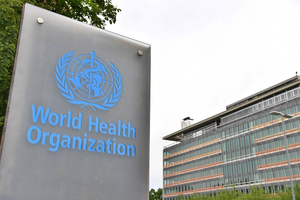
New Delhi, Sep 18 — Noncommunicable diseases (NCDs) such as diabetes, hypertension, and cancers, alongside mental health conditions like anxiety and depression, are emerging as silent killers globally, according to World Health Organisation (WHO) Director General, Dr. Tedros Adhanom Ghebreyesus. Speaking on Thursday, he emphasized the critical need for countries to bolster cost-effective strategies to combat the escalating burden of these health issues.
“Noncommunicable diseases and mental health conditions are silent killers, robbing us of lives and innovation,” stated Ghebreyesus. His remarks coincide with the release of a new WHO report titled “Saving lives, spending less,” which underscores the economic and health benefits of investing in NCDs and mental health management. The report suggests that an additional investment of just $3 per person annually could yield economic returns of up to $1 trillion by 2030.
Global Progress and Challenges
According to the report, 82 percent of countries achieved reductions in NCD mortality between 2010 and 2019. However, the pace of progress has decelerated significantly, with a 60 percent slowdown observed across most regions. Alarmingly, some nations are witnessing a resurgence in NCD-related deaths.
NCDs account for the majority of global deaths, while over one billion people are affected by mental health conditions. Particularly concerning is the fact that nearly 75 percent of deaths related to these issues occur in low- and middle-income countries, resulting in 32 million lives lost annually.
“We have the tools to save lives and reduce suffering. Countries like Denmark, South Korea, and Moldova are leading the way, while others are stalling. Investing in the fight against NCDs isn’t just smart economics—it’s an urgent necessity for thriving societies,” said the WHO Director-General.
Economic and Social Implications
The WHO report highlights that without urgent and sustained action, millions more lives will be prematurely lost. The solutions to address NCDs and promote mental health are not only affordable but also highly cost-effective. The organization urges governments to take decisive action against powerful industries whose products exacerbate these health issues, such as tobacco, alcohol, and ultra-processed food companies. These industries often attempt to obstruct or weaken life-saving policies, including health taxes and marketing restrictions aimed at protecting children.
“It is unacceptable that commercial interests are profiting from increasing deaths and disease,” said Dr. Etienne Krug, Director of WHO’s Department of Health Determinants, Promotion and Prevention. “Governments must put people before profits and ensure evidence-based policy is not derailed by corporate pressure.”
Looking Ahead: Urgent Actions Required
This call to action comes as the global community grapples with the dual challenges of managing existing health crises and preparing for future ones. The WHO’s emphasis on cost-effective interventions offers a roadmap for countries to not only save lives but also foster economic resilience. By prioritizing health over commercial interests, nations can pave the way for healthier, more productive societies.
As the world continues to navigate these complex health challenges, the WHO’s report serves as a stark reminder of the urgent need for collective action. The potential economic benefits of addressing NCDs and mental health issues are substantial, but the social and human benefits are immeasurable. The time for action is now, and the global community must unite to tackle these silent killers before more lives are lost.







